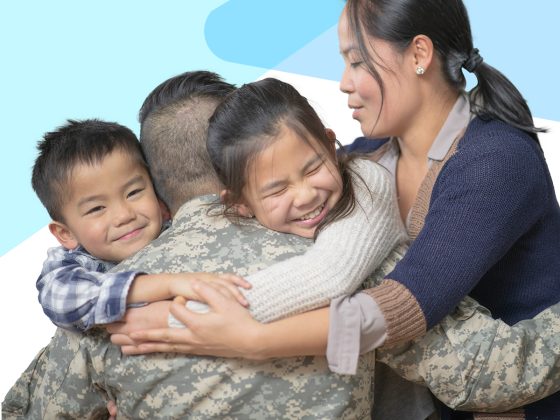
Standing Against Racism with Affirmations and Self-Care
Protecting the emotional well-being of military children who experience racism.
By Tiffany Eve Lawrence
Every year, April is set aside as the Month of the Military Child, when we acknowledge the unique role they have and the specific challenges they overcome being in military families.
Because of everything military children experience, one popular word used to describe them is resilient. This lifestyle teaches them really early that change is a recurring theme in their lives, so they adapt. But instead of talking about their resilience, let’s focus on their needs, especially when it relates to how racism and prejudice may affect their world.
BIPOC groups make up less than half of the active-duty military—about 40%. These families experience firsthand the confusion on their children’s faces when they realize that people who look like them have been disrespected or treated unkindly and unfairly. It is a natural reaction to want to protect children from this reality. That instinct is ok. And we can use it as a balancing tool to remember that as we have these discussions, we should protect their emotional and mental health as well. Two main themes to use in your home are affirmations and self-care.
Affirm Their Identity
The purpose of affirming your child’s identity is to validate their existence. Military children are always the new children on the block, so fitting in and finding friends can be difficult. They must know their worth is not reliant on another person’s opinion of them, and they deserve to be here, be loved, and feel safe. Here are some examples of everyday affirmations:
Verbal Affirmations
- “Military children get to have so many new adventures.”
- “There is nobody in this world quite like you.”
- “The color of your skin is so beautiful.”
- “You may be new here, but any friend is lucky to have you in their life.”
- “If someone says something mean about you, he/she is wrong. Always remember how great you are and that this world needs you.”
Affirming Actions
- Your daily hugs help a lot.
- Remind children you are there to listen to how they feel and what they think.
- Post even more beautiful images of your culture around your home.
Simple Self-Care Practices
Part of self-care is finding everyday joy, so that the weight and trauma of racism don’t affect our mental health. Here are a few ideas:
- Take a walk together
- Do family yoga
- Have family night doing their favorite thing (movie, games, painting, etc.)
- Have a kiddie spa day: Paint nails, give facials, and play relaxing music
- Dance to music that reflects the joy of your culture
- Color together
- Make home their happy place
And… teaching children how important and valued they are is always an effective tool to stand up against racism.
Tiffany Eve Lawrence is a journalist who’s been writing professionally for several years. She has a unique way of unpacking topics that can be uncomfortable, ranging from parenting to mental health and social issues. Her ties to the military as a Marine Corps spouse put her in the center of sharing stories of how those who serve are impacted. Tiffany’s journalism and essays can be found online and in print in various publications, including Parents, Glamour, Romper, Courier Newsroom, Military Families Magazine, and more. www.bytiffanyeve.com
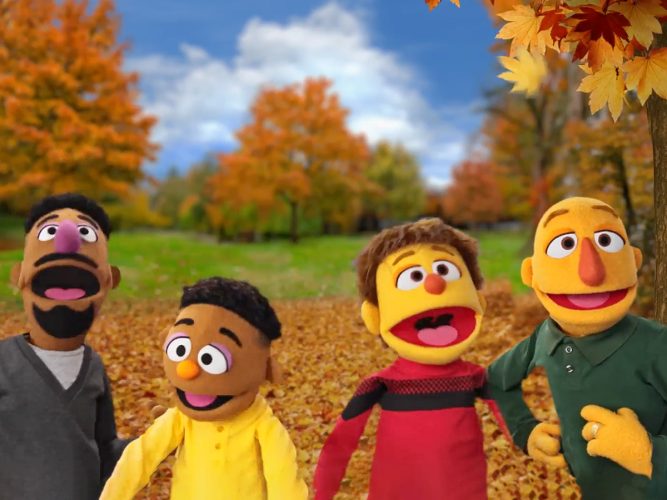
The Wiggle-Jiggle Game
A video about a getting-to-know-you game that helps kids appreciate similarities and differences.
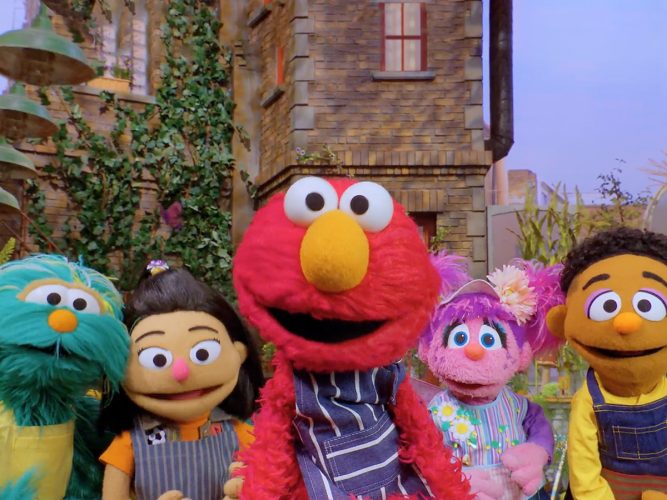
Community Song
A video about community.
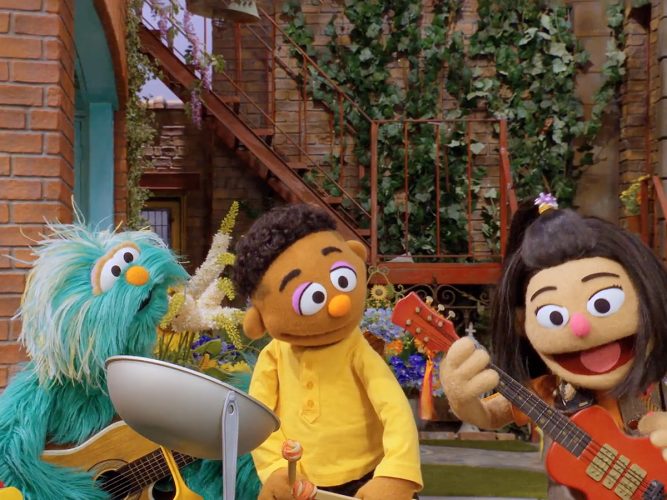
Musical Show & Share
A video about coming together to create something beautiful.
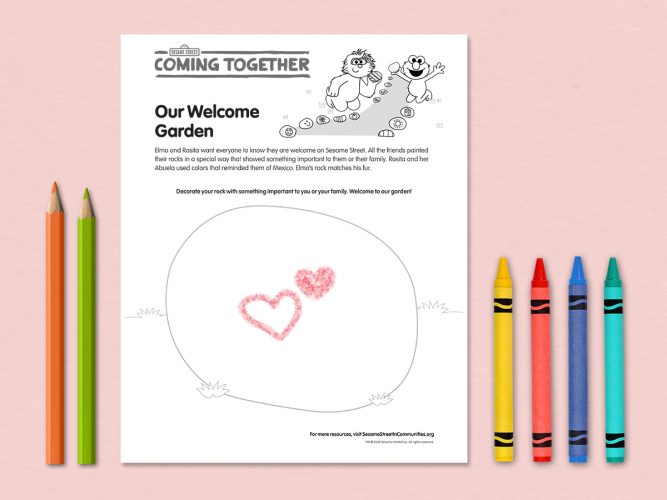
Our Welcome Garden
A printable page about a community rock garden.
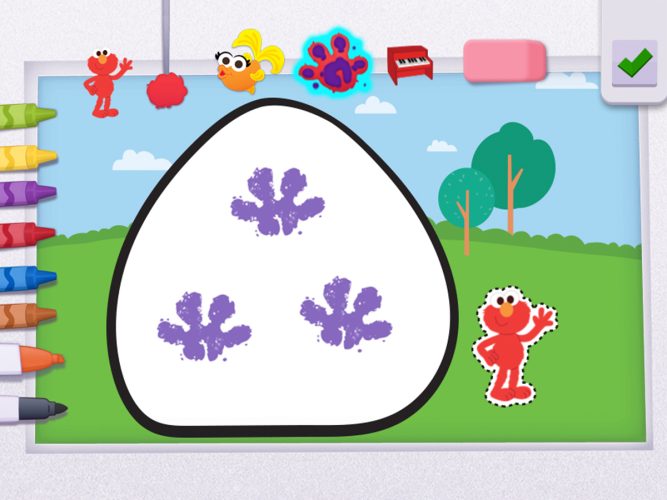
Welcome to Our Garden
An interactive game in which children add rocks to the Sesame Street community garden.
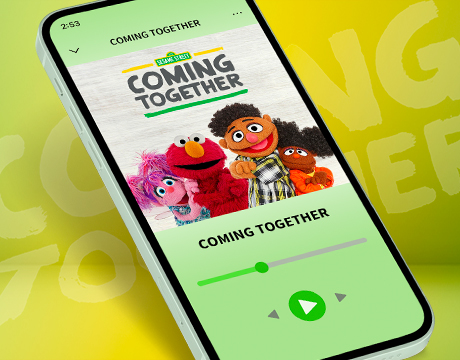
Coming Together Playlist
This curated playlist is perfect for helping children explore friendships, celebrate differences, and build a better future.
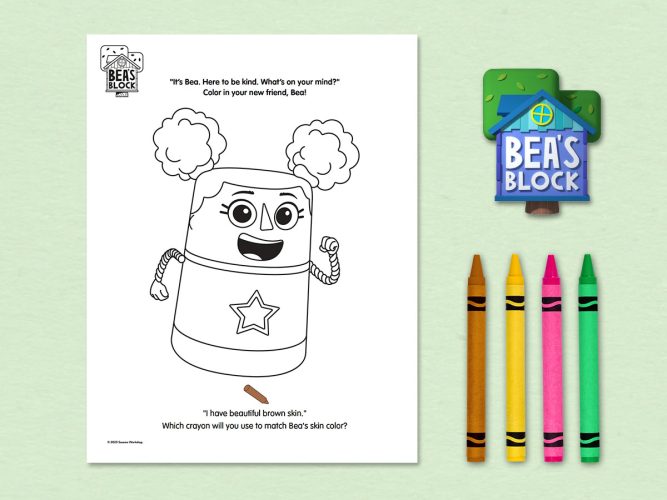
Bea’s Block Kindness Adventure Color & Activity Guide
Activities and coloring pages for children that celebrate kindness.
